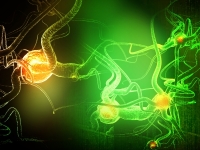Multiple Sclerosis: What you need to know
What is Multiple Sclerosis?
Multiple Sclerosis (MS) is an autoimmune disorder caused by destruction of the insulating layer surrounding neurons in the brain and spinal cord.
The process of MS is thought to be one in which the body, through its immune system, launches a defensive attack against its own tissues. Immune factors converge in the nerve cells and trigger inflammation and the body responds with an autoimmune attack on myelin and axons.
What happens in MS?
This insulating layer surrounding nerves, called myelin, is like the plastic that surrounds the wire of an electrical cord. If the plastic is damaged it will expose the bare wire that lies beneath it and it can short-out or distort the device that it’s attached to. When this happens in the body, the neurons in the brain responsible for transmission of electrical impulses can suddenly dampen. Transmission fails to flow and signal other parts of the central nervous system causing a short in the way you normally function. It’s kind of like your internet service running slow because of some external damage in the cable.
What are the symptoms of MS?
MS symptoms are relapsing and remitting in the early stages of the disease. People with multiple sclerosis tend to have their first symptoms between the ages of 20 and 40. Usually the symptoms get better, but then come back. Some may come and go, while others linger.
Some of the symptoms of MS include:
- Blurred or double vision
- Thinking problems
- Clumsiness or a lack of coordination
- Loss of balance
- Numbness
- Tingling
- Weakness in an arm or leg.
Over time, the disease enters an irreversible progressive phase of neurological deficit.
MS is a diverse disease. No two affected persons are the same and each will experience different combinations of symptoms with differing severity. The most common form is relapsing-remitting multiple sclerosis (RRMS), which affects 80–85% of people with MS. These patients develop disease relapses, often without a specific trigger, but possibly associated with infections. Disease relapses can last between 24 hours and several months, and the person may, or may not, completely recover.
What causes MS?
The most popular current theory is that the disease occurs in people with a genetic susceptibility as well as exposure to some environmental assault such as a virus, microbe or toxin that crosses the blood-brain barrier, a protective membrane that controls the passage of substances from the blood into the central nervous system.
A number of disease patterns have been observed in MS patients, and some experts believe that MS is not a single disorder, but may represent several diseases with different causes.
Evidence is mounting that infection with the Epstein-Barr virus (EBV), which can cause mononucleosis, may also increase the risk of developing multiple sclerosis later in life. Researchers have shown that people with multiple sclerosis tend to carry higher levels of antibodies to the Epstein-Barr virus and that they seem to be at higher risk for the disease. Some of the immune cells that become programmed to attack the Epstein-Barr virus may begin to attack myelin as well.
How is MS treated?
Mainstream treatment for MS include disease-modifying medications which mean there is no cure for MS. These medications will only reduce the frequency and severity of attacks and the trade-off is they host a list of side effects.
- Aubagino
- Avonex
- Betaseron
- Copaxone
- Extavia
- Gilenya
- Novantrone
- Rebif
- Tysabri
Are there alternative ways to treat MS?
Functional medicine approaches appear to be more user-friendly and look to the cause of the disease rather than suppress the frequency of symptomatic attacks. If you’ve been diagnosed with MS I would suggest looking into a PCR viral panel for Epstein Barr as well as further investigation in identifying toxins or microbes that would be labeled as pathogenic such as Lyme Disease. A stealth pathogen panel would cover a number of pathogens at one time.
Remember MS just didn’t appear out of nowhere, there was a trigger that stimulated your immune system to attack your central nervous system. There’s nothing wrong with exploring a natural approach to your problem even if you’re already taking medication.

